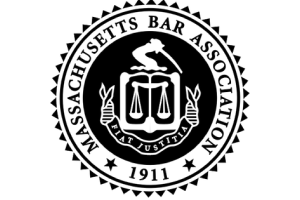SJC Upholds Constitutional Sanctity of the Home in Commonwealth v. Alexis, Rejects Erosion of Warrant Requirement
December 14, 2018.
Summary: In Commonwealth v. Alexis, 481 Mass. 91 (2018), the Massachusetts Supreme Judicial Court affirmed the suppression of evidence obtained during a warrantless entry into the defendant’s home, ruling that the police created the exigent circumstances used to justify the entry, violating Article 14 of the Massachusetts Declaration of Rights. The court held that foreseeable exigencies created by police conduct cannot be used to circumvent the warrant requirement.
Our Take:
In Alexis, the SJC embraced an opportunity to prevent the further erosion of constitutional principles of paramount significance – the sanctity of the home and the importance of the warrant requirement – which the Supreme Court disregarded in its decision in Kentucky v. King.
In King, the Supreme Court held that police may rely on the “exigent circumstances” exception to the warrant requirement, even if they manufacture a foreseeable, preventable exigency, so long as they do not violate the 4th amendment in doing so. The rule in King allows police to show up at the house of a suspect uninvited, intentionally cause shock and alarm, and then cry exigency as means of circumventing the warrant requirement.
Justice Ginsberg warned in her dissent in King, “How ‘secure’ do our homes remain if police, armed with no warrant, can pound on doors at will and, on hearing sounds indicative of things moving, forcibly enter and search for evidence of unlawful activity?” Her dire prediction came true with the behavior of the police officers in Alexis. There, an officer developed probable cause to arrest the Defendant for a violent home invasion, drafted an arrest warrant application, but declined to submit it, simply because it was late at night and his shift was ending. Instead of taking the application to the courthouse, officers on the morning shift went to the Defendant’s residence. They schemed to knock on the Defendant’s door, question him, and generate an opportunity to arrest him. Predictably, when police arrived, the Defendant attempted to escape though a back window and was arrested. The officers conducted a security sweep, observed evidence in plain view, and subsequently used that evidence to apply for a search warrant.
In short, the officers chose to circumvent the warrant requirement by flushing the Defendant out of his house. King permits such a result, because by knocking on the Defendant’s front door, police violated no 4th Amendment protections. However, the SJC recognized, as did Justice Ginsberg in her dissent in King, that by allowing this type of behavior to go unchecked, police can intentionally and easily dispense with the warrant requirement. This is an unacceptable result, considering that “Nowhere are expectations of privacy greater than in the home[.]” Alexis, citing Commonwealth v. Balicki, 436 Mass. 1, 12 n.14 (2002).
Notably, even if the SJC had chosen to apply the rule in King under Article 14, suppression still should have been the result in this case. The SJC noted that the officers in this case violated no constitutional rights by knocking on the Defendant’s door, as officers have “an implied license to walk up the path to the front door of a home and knock[.]” Alexis at n. 11, citing Commonwealth v. Leslie, 477 Mass. 48, 57 (2017). However, “the background social norms that invite a visitor to the front door do not invite him there to conduct a search.” Florida v. Jardines, 569 U.S. 1, 9 (2013). Nor did those social norms invite the officers in Alexis to “set up a perimeter” around the Defendant’s house by lying in wait in his yard. This “physical intrusion into the constitutionally protected area of the residence,” Leslie at 57, constitutes a 4th Amendment violation, rendering the King doctrine inapplicable. Fortunately, the SJC did not need to reach such a conclusion, as it chose to amputate the King doctrine entirely from Article 14 jurisprudence.
The constitution always prefers a warrant. Supreme Court jurisprudence has eroded the once sharp point of the 4th Amendment down to a dull stump. Warrantless searches and seizures have become the rule rather than the exception. The SJC in Alexis, however, stood vigilant against such constitutional decay, drawing a line at the Defendant’s front door.





